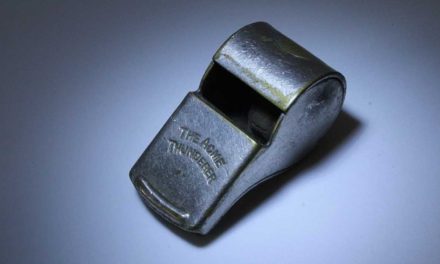Let’s say, hypothetically, you’re motivated to run for elected office in your home state in Summer 2020 because you feel strongly about the political environment in your state. And you believe you can do a better job than the incumbent is doing. And you choose to run for this hypothetical office during the COVID-19 pandemic.
What are the ethics of doing something like this?
Do not dwell on this hypothetical person’s sanity, how well he’s doing on his meds, or his apparent need to punish himself and his loved ones. Just focus on the ethics of how this person runs for office, what he will face between now and November, and whether he will fall off whatever wagon he’s on that might account for a decision this problematic.
Assume the would-be public office holder has not given much thought to running for office during a pandemic. He does not sense that he and his campaign staff will risk getting COVID-19 as they campaign while it’s infecting thousands of potential voters. To run during a pandemic means accepting the risk of getting and spreading illness. He must ask supporters to spend money on a political campaign instead of spending it on food and shelter for persons who think politics, as we know it, is a nasty business. He has to make speeches and promise political results without knowing whether the pandemic will get worse before it gets better. And he will be out there amongst politicians and political junkies asking for money, at a time when money is a scarce commodity.
What are the ethics of politicking during a public health crisis?
Mothers will not let him kiss their babies. Strangers will not grasp his outstretched hand. Ads and robocalls are off-putting enough, without listening to a novice politician run for his first office, during a pandemic. Most voters are scared to death. Many former voters are burrowed deep into shelters but are watching the news on TV, along with old movies. They fast-forward when political ads pop up. A sizeable portion of voters in purple states are ready to vote by mail for any functioning adult who does not look or talk like a politician. And as always, a small subset of voters are living fast, hoping to die young and leave a beautiful memory.
The ethical challenge is how to raise money, state the truth, not look like you’re desperate for public office, and still win an election, during a pandemic. There are basic rules of living through and running for office during a pandemic:
- Do not hold big events or rallies.
- Don’t get close to people you are trying to convince to vote for you.
- Point your elbow at potential voters throats.
- Try not to sound muffled behind your N-95 freshly sanitized mask.
- Carry hand sanitizer in the most obvious way you can.
- Wash your hands in public as often as you can and as close to the camera lens as possible.
- Zoom constantly.
Shift blame for your prior lack of leadership, but don’t blame anyone for their COVID-19 ignorance. Say it’s nobody’s fault. Admit national decisions might have made things worse, and argue that local decisions were better. Establish ethical boundaries by writing down your lines before you say them. Display them on your GoDaddy website, text them to potential supporters, tape them to your bookbag. Decide in advance, before questions are asked.
If you do all of these things ethically and frequently, and your opponent does not get more votes than you do, you will win.

I am an author and a part-time lawyer with a focus on ethics and professional discipline. I teach creative writing and ethics to law students at Arizona State University. Read my bio.
If you have an important story you want told, you can commission me to write it for you. Learn how.






 I am an author and a part-time lawyer with a focus on ethics and professional discipline. I teach creative writing and ethics to law students at Arizona State University.
I am an author and a part-time lawyer with a focus on ethics and professional discipline. I teach creative writing and ethics to law students at Arizona State University.  My latest novel is Hide & Be.
My latest novel is Hide & Be.  If you have an important story you want told, you can commission me to write it for you.
If you have an important story you want told, you can commission me to write it for you.